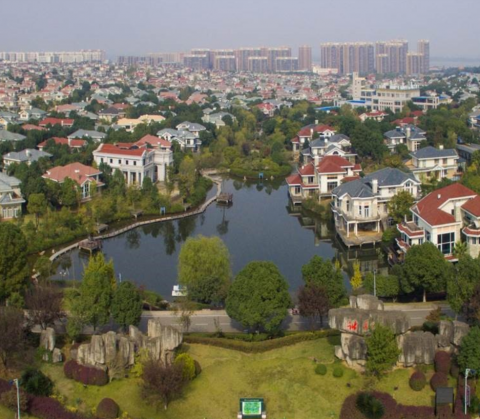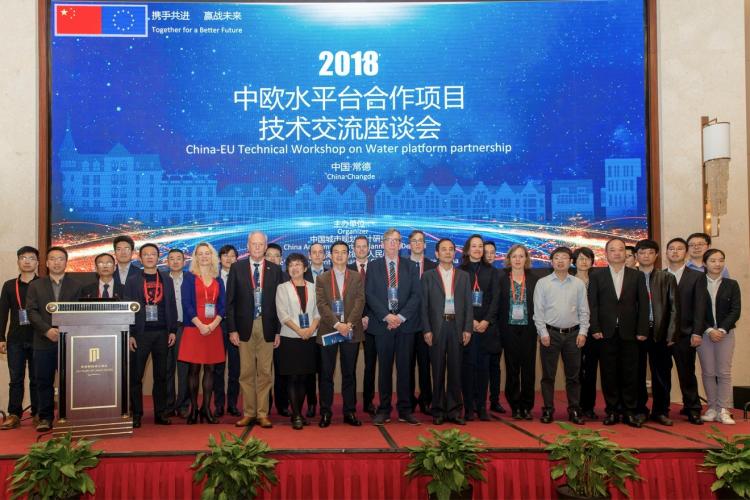
The EU expert team from Netherlands, Denmark, Finland and Sweden had its first joined mission to China 24-30 March 2018. This visit was the first of two missions during the inception phase of the project with the main objective of further liaising with the Chinese partners towards agreement on the Chinese pilot cities and the specific cooperation items.
As in Europe, Chinese cities used to rely on drainage systems to remove rainwater. But rapid urbanization and extreme weather events have resulted in more severe floods occurring, illustrate that the drainage systems are extended beyond their capacity. Casualties under civilians and high economical losses showed the limitations of the simple drainage solution. The Sponge City concepts deal with the integrated approach to improve the water resilience in the urban areas and moreover goes beyond mitigating just the effects of heavy rainfall. Spatial development can help limit the impact of flooding, heavy rainfall, extended dry periods and very high temperatures. All over the world, especially in Delta’s city transformation implementing Sponge City concepts sets the agenda.
This CEWP-PI project is about the exchange and further development of Sponge City Concepts and addresses the main issues for successful implementation; decision support tools; integrated approach; sustainability; cost effectiveness; financing and the institutional frame work.
The mission resulted in nominating Beijing and Changde (Hunan Province) as Chinese pilot Cities. Beijing Water Authorities, part of the Ministry of Water Resources, will be the main beneficiary for the demonstration in Beijing. The emphases will be with the hydrological chain and how the SCC approach can address the Beijing’s water demand, recharging groundwater, water quality improvement and meanwhile addressing livability.
For Changde, The Chinese Academy of Urban Planning and Design (CAUPD) under the Ministry of Housing will be the main beneficiary. The emphasis in Changde will be on sustainability, socio-economics, financing and adaptive pathway planning for Sponge City implementation. In working with these two main beneficiaries, under two Chinese ministries which deal with Sponge City implementation the project aims at engaging in the policy dialogue under the general CEWP-PI framework.
CAUPD and the Changde authorities are new partners under CEWP. For the introduction of CEWP, the PI programme and in particular the “China Europe Cooperation on Sponge Cities” a general seminar, with nearly 100 participants, was organized in Changde on March 29th 2018.

In the next months the EU partners will elaborate on several themes under their work packages in a further exchange with the Chinese partners. The project entails City-to-City learning for Beijing and Changde with 4 European Cities; Amsterdam, Copenhagen, Gothenburg and Turku. The first step for the Cities will be a mapping exercise and a needs assessment in order to bring the Sponge City expertise into the discussion for the cities work programme for 2019 and 2020. At the end of this year, the inception phase will be concluded with the main beneficiaries by signing Cooperation Protocols including the work programmes.
